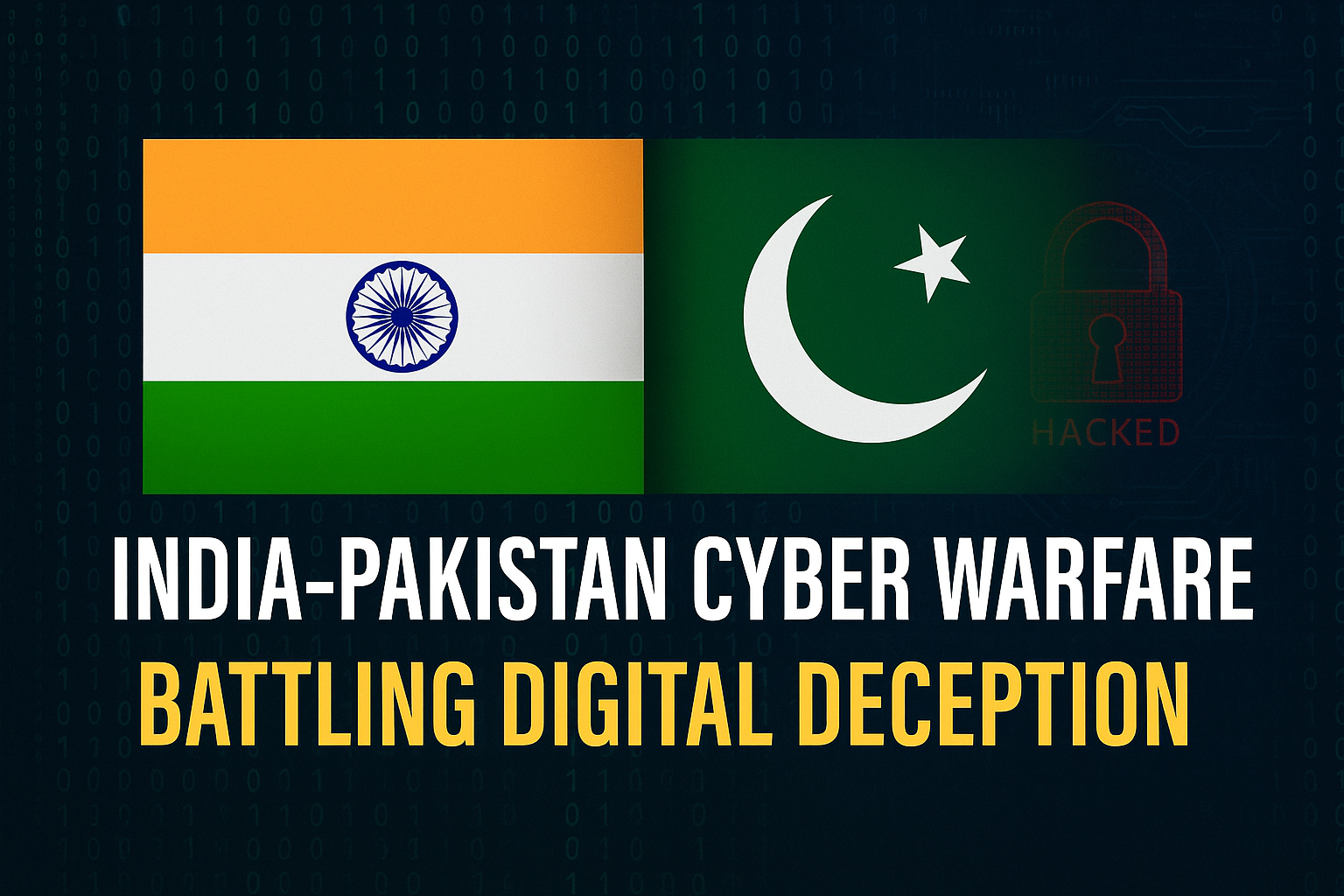India-Pakistan Cyber Warfare: Defending Truth in the Digital Battlefield
In today’s interconnected world, India Pakistan cyber warfare has emerged as a critical front in the ongoing tensions between the two nations. Beyond traditional military confrontations, both countries are now engaged in digital battles where misinformation, hacking, and cyber espionage play pivotal roles. This article delves into the complexities of this cyber conflict and underscores the imperative of defending truth amid digital deception.
What is Cyber Warfare Anyway?
Let’s break it down. Cyber warfare refers to the use of digital attacks by nation-states to spy on, disrupt, or damage another country’s networks and systems. Think of hackers replacing traditional foot soldiers — but instead of guns, they use keyboards.
It’s not just science fiction anymore. This is real, and it’s happening now.
A Digital Conflict Between India and Pakistan
The India-Pakistan rivalry has long been a topic of international attention. Historically, tensions have resulted in wars and skirmishes. But today, there’s a new front — the internet.
Whether it’s after a cross-border clash or a political dispute, it doesn’t take long before websites are hacked, social media is flooded with fake news, or deepfake videos surface — manipulating facts and shaping public opinion. Unfortunately, the line between reality and fiction becomes very blurry.
What Happens After a Military Strike?
Let’s take a real-world example. After the 2019 Balakot airstrike by India, there was a surge in online activity. Twitter, Facebook, and WhatsApp were flooded with videos and posts — some real, many fake. The goal? Not to inform, but to influence.
Suddenly, everyone became a source of breaking news. Nationalism soared, emotions flared, and misinformation spread like wildfire.
The Bigger Threat: Digital Deception
Why is this so dangerous? Because lies online can shape public understanding, impact decisions, and even influence government policy. When people are bombarded with false information, it becomes harder to separate facts from fiction.
Let me ask you this — have you ever come across a post that shocked you, only to find out later it was fake? It’s frustrating, right? That’s the power of digital deception, and it’s only getting more sophisticated.
The Tools of Cyber Misinformation
Here are some of the common tactics used in cyber warfare between nations like India and Pakistan:
- Fake News Articles – Designed to look like trusted news sources.
- Deepfake Videos – AI-generated to show people saying or doing things they never did.
- Phishing Attacks – To gather sensitive information from military or political agencies.
- Social Media Manipulation – Using bots and trolls to steer conversations and inflame tensions.
Who’s Behind These Cyber Attacks?
Government-backed hacker groups, often termed “cyber soldiers,” are typically behind these attacks. These groups are smart, well-resourced, and motivated. They see the cyber realm as a tool not just for espionage but as a way to win the hearts and minds of people — both at home and abroad.
Why Truth Matters More Than Ever
In war, the first casualty is truth. But in cyber warfare, it’s the main target.
When chaos follows a military action, quick and clear information combats panic. But if misinformation takes over, people lose faith — in governments, in media, even in their own judgment.
This is where digital information integrity becomes critical.
So, What Can Be Done?
It may seem overwhelming, but there are real steps that can be taken. Whether you’re in government or just scrolling through your feed, we all play a part in this digital battlefield.
For Governments and Agencies:
- Build Cyber Defense Forces – Just like we have the army, navy, and air force, we need strong cyber units to defend national interests.
- Invest in Real-Time Fact-Checking – Use technology to debunk false narratives quickly before they spread.
- International Cooperation – Collaborate with other nations to track and neutralize cyber threats.
For Everyday People Like Us:
- Think Twice Before Sharing – Is this post true? Where is it from? Take a minute to check.
- Follow Credible News – Look for verified sources and avoid relying solely on social media.
- Report Misinformation – Social platforms allow users to flag false content — use that feature to your advantage.
The Road Ahead: Awareness is Key
Fighting a cyber war isn’t just about putting up firewalls and coding complicated defense systems. It’s also about educating the public, increasing media literacy, and promoting transparent communication.
Imagine if every user online became a fact-checker. Misinformation wouldn’t stand a chance.
India’s Responsibility in the Digital Age
India, as a global tech powerhouse, has a vital role to play. It has the talent, the resources, and the appetite to build robust cyber capabilities. But more importantly, India has the opportunity to set an example in how it defends not just its borders, but its truth.
The ongoing India-Pakistan cyber struggle isn’t just about hacking websites or leaking sensitive data. It’s a larger war of narratives, trust, and belief. And in this battle, truth is our strongest weapon.
Final Thoughts
In a world where anyone with a smartphone can influence public opinion, defending truth has never been more important. Cyber warfare may be invisible, but its impact is very real.
By staying informed, being skeptical of unverified content, and pushing for more transparency, we can all play a role in this modern fight. Let’s not be passive players in this digital war — let’s stand for facts, reason, and clarity.
Because in war — digital or not — knowing the truth might just be the only way to win.
Have You Noticed Cyber Propaganda?
Next time you see a shocking video or headline online, pause and ask yourself: Is this real? And if not, who benefits from this lie?
In the end, the best firewall against misinformation isn’t software — it’s a well-informed mind.
Stay curious. Stay alert. Stay honest.


